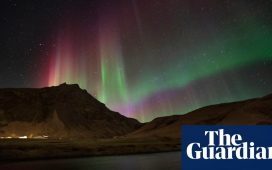Already this week, snow has been recorded in parts of Texas and Tennessee has seen a big freeze – something which is uncommon for autumn in the warmer parts of the US. However, experts warn this could become more common in the future as climate change causes damage to the jet stream and polar vortex. While it sounds counter-intuitive to link global warming to colder weather, scientists say there is a reason behind it.
Researchers say that as sea ice in the Arctic Ocean shrinks, it releases warmer water which in turn slightly heats up the atmosphere.
This results in a wavier jet stream – a stream of air up to 16 kilometres above the Earth’s surface which moves weather systems around the globe – and makes it easier for bitter winds from the North Pole to be shifted southwards, while warm air moves north.
This is coupled with a weak polar vortex. If the polar vortex weakens, it causes the jet stream to become distorted, allowing the cold polar air to spill down to the continents.
This leads to arctic blasts in places which are not usually associated with freezing temperatures, such as Texas.
Judah Cohen, an atmospheric scientist at the Michigan Institute of Technology (MIT), told National Geographic: “This Arctic outbreak is connected to the behaviour of the jet stream and the polar vortex.”
Previous research has shown that changes in the jet stream since 1960 is increasing extreme weather phenomena such as droughts, heatwaves and cold snaps including floods which have been exacerbated by global warming.
Nalan Koc, research director of the Norwegian Polar Institute, said: “The jet stream becomes wavier, meaning that colder air can penetrate further south and warmer air further north.”
Erik Solheim, head of the UN Environment, said: “What we once considered to be anomalies are becoming the new normal.
READ MORE: Weather warning: Ireland to experience ‘ARMAGEDDON’ like weather
The BBC weather forecast claimed that this Arctic drop could continue well into the next week.
The BBC’s meteorologist Louise Lear warned parts of Northern Europe are experiencing a drastic plunge in temperatures.
This drop is far below what it is expected at this time of year, with a freezing -30C recorded in Scandinavia this week.














